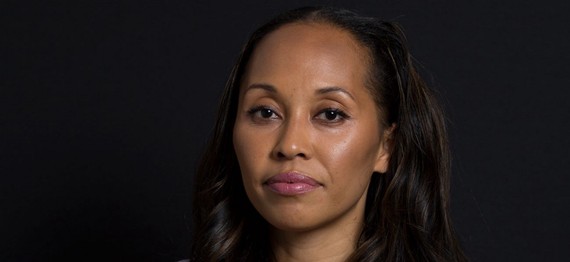This post originally appeared on Medium and is part of a new series from Google Ideas.My colleagues and I traveled to the Oslo Freedom Forum to meet with a diverse group of policy makers, artists, journalists, writers, entrepreneurs, activists, hackers, and diplomats. What follows is the first of a series of conversations with some of the world's most prominent experts on the global fight for free expression and the role that technology plays on both sides of the struggle.
Kim Motley's morning routine isn't like that of most lawyers. She drives her motorcycle different routes to her office. She rarely speaks to clients over the phone, and she never reveals her location during rare calls. She even sleeps in different locations to avoid having a predictable routine. Such are the joys of being a woman, a lawyer, and working as a foreigner in Afghanistan, all at the same time.
Motley's clients aren't very typical either. She maintains a thriving corporate litigation practice so that she can represent abused women and girls pro bono. In a country where until recently dancing and music were banned by the Taliban, and where women enjoyed few if any civil rights, you can imagine the look on a judge's face when a black former beauty queen-turned-litigator steps into the courtroom to represent a child sex slave or a wife who has suffered terrible abuse, often from her own husband or extended family.
Motley recalled representing a 6-year-old girl named Naghma, whose father was selling her to another local man to settle a $2500 debt he couldn't pay. Motley convinced the local tribal council, or jirga, to reverse the settlement and spare Naghma from an adolescence spent as another man's chattel. Tribal elders were stunned to discover that Motley had studied both Islamic law and the (largely unwritten) tribal law that governs much of rural Afghanistan.
 Kimberley Motley is an international litigator and former Mrs. Wisconsin -- America beauty queen currently working on commercial, criminal, and human rights issues.
Kimberley Motley is an international litigator and former Mrs. Wisconsin -- America beauty queen currently working on commercial, criminal, and human rights issues.
But Motley owes at least some of her progress to the other rapid evolution of Afghan popular culture, and no one has done more to bring about a renaissance in Afghan media and entertainment than Saad Mohseni. Mohseni runs Moby Group, a media conglomerate that specializes in bringing programming to places like Afghanistan, Iraq, Iran, Yemen, the Gulf states, and northern Africa.
Kimberley Motley is an international litigator and former Mrs. Wisconsin -- America beauty queen currently working on commercial, criminal, and human rights issues.
When Mohseni returned to his ancestral homeland of Afghanistan after spending his childhood abroad as the son of a diplomat, he did what some people thought was impossible in the wake of a brutal Taliban occupation and a seemingly endless war. He made people laugh. Then he reported the news. He produced some of the country's first soap operas, it's first variety show, and it's first news program to have both male and female anchors. He brought international music to local radio and leveraged his initial success to build a media empire across the Middle East. "Our intention was to push the envelope and challenge," he explains. "They were calling for our blood within weeks."
In my conversations with Mohseni and Motley, I was struck by how keenly aware they both were that popular culture creates the space for politics to evolve, not the other way around. Neither Motley nor Mohseni are politicians, yet their political power is undeniable. It seems that the hopes of a nation emerging from a prolonged period of violence and oppression rest not with the political class, but with those courageous individuals who present a new image of what it means to be free, alive, and in Afghanistan, all at the same time.
To hear more from Saad Mohseni and Kim Motley listen to our full interviews here. Special thanks goes out to Human Rights Foundation, organizers of Oslo Freedom Forum.